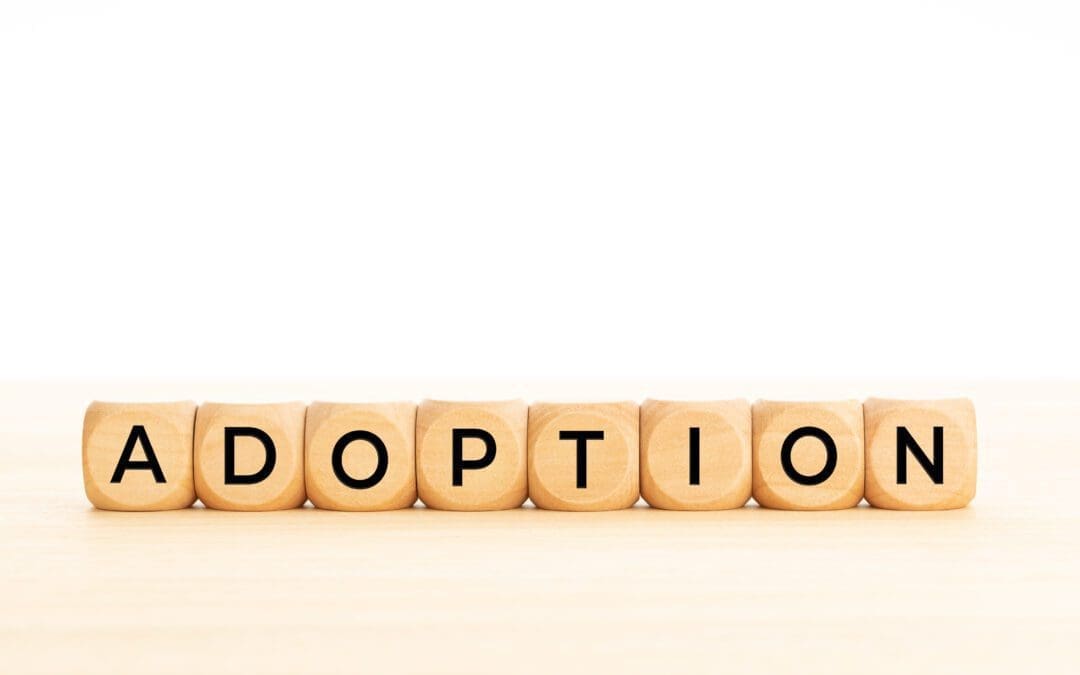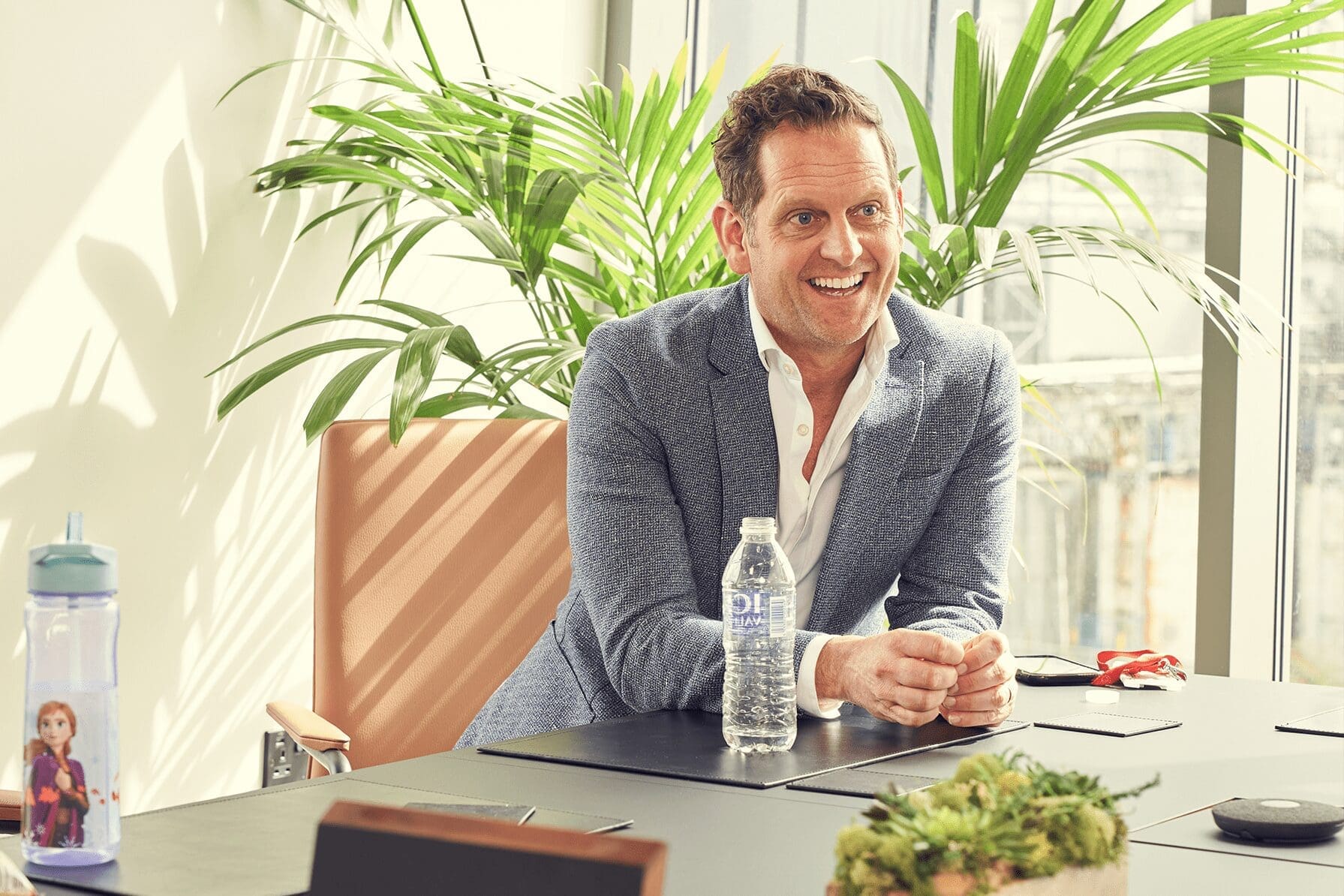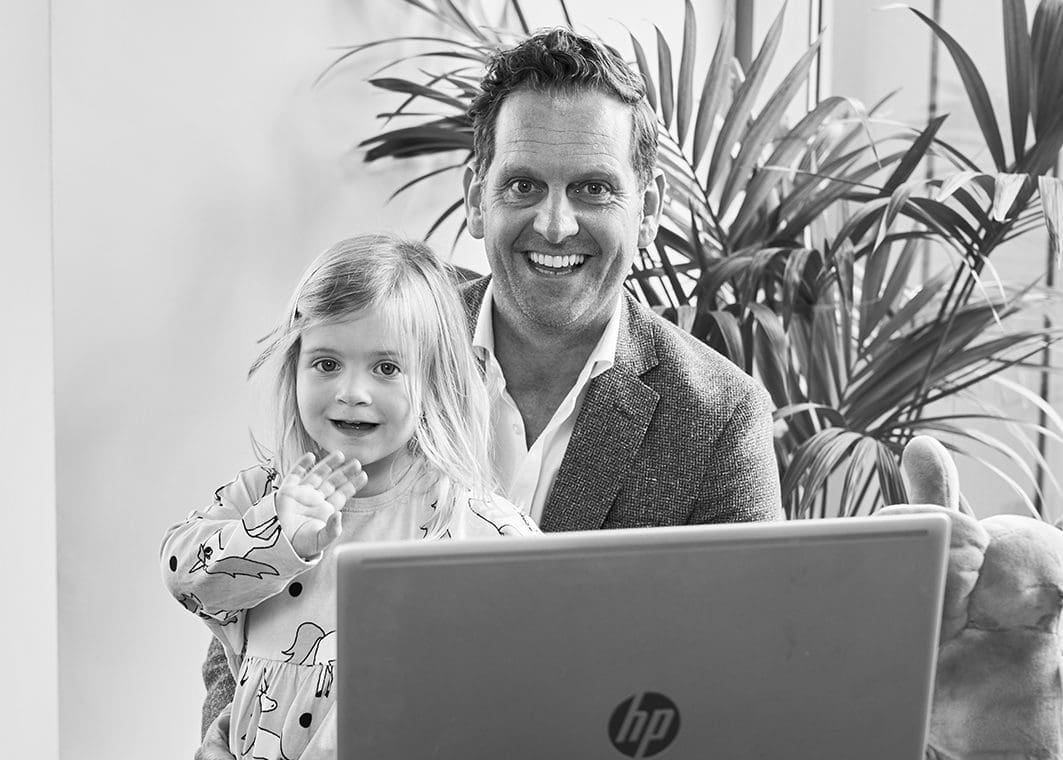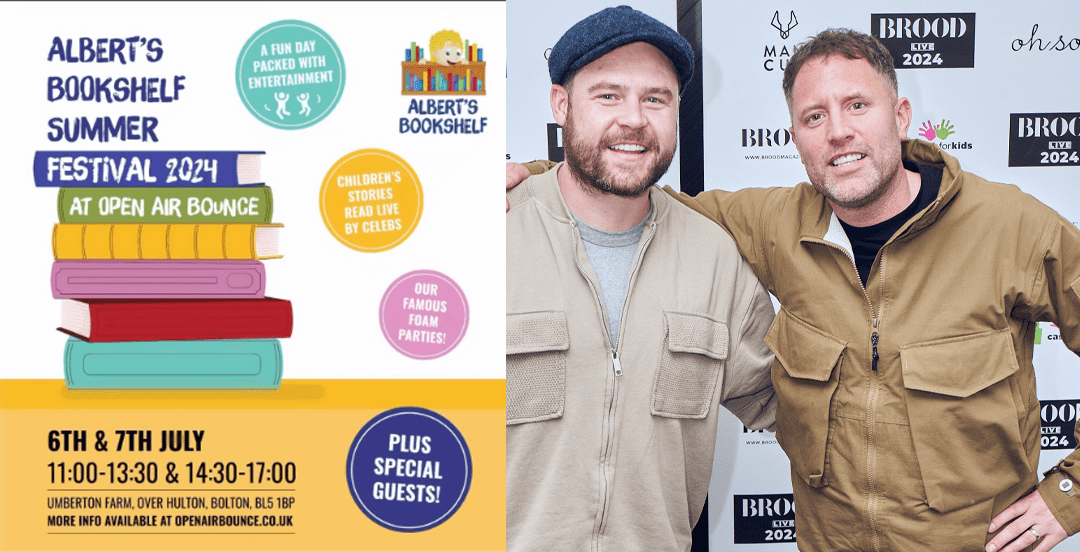“IT DOESN’T MATTER WHAT COUPLES IN SOCIETY DO, IF THEY AGREE TO ROLLING AROUND IN THEIR HIPPY BED, LETTING THEIR BABY SUCK ON THEIR T**S UNTIL YOU’RE BOTH 60, IF THAT’S WHAT YOU WANT – NO ONE SHOULD JUDGE ANYONE, I JUST THINK IT’S REALLY IMPORTANT TO AGREE ON HOW YOU WANT TO RAISE YOUR KID BEFOREHAND.”

I never expected to be a dad: The path to adoption with Adrian Adair
“…Honestly, I never thought I’d be a dad”
For many, the path to parenthood is not made from perfectly shaped, life stepping stones. Keen to explore the diverse routes to, and experiences of, becoming a parent I reached out to one of our Morson executive managers who has recently navigated the adoption process to become a father with his partner.
For safeguarding purposes, we have kept the identity of the family anonymous, so there’s no BROOD photography provided by the talented Tom Pitfield, but I’m confident you’ll be as moved by this honest, inspiring and, at times, emotional story as I was.
During our conversation, we explore the challenges of raising a child with a traumatic past, the complications of using traditional parenting techniques with an adoptive child and why adoption should be considered more widely as a path to parenthood.



Let’s start with your new reality, parenthood. How long have you been a dad?
We have had our boy for just under a year now, he moved in with us in November of last year. Honestly, I never thought I’d be a dad, but my partner and I have been together for 17 years and we felt it was time to start a family, so we decided to explore adoption.
We’ve had many a conversation over the past 9 months about how your little boy has changed your life and I’m interested to understand more about your experience of adopting and the adoption process itself…
It’s been an interesting time, not least because of the personal circumstances and realities you become aware of. All children who are in the adoption process will have experienced trauma in one way or another. The very reason they’re in the care system is because they have encountered some kind of harm and that could be anything from physical, sexual or emotional abuse and severe neglect. So, a big part of the process is having to prepare yourself to cope with, understand and manage that child’s experiences and life story.
Because we’ve adopted a slightly older child, who wasn’t put into the system until they were five and a half, he’s had years of not having his needs met. As you can imagine, caring for a child who has gone for five and a half years experiencing that when you cry, no one’s cuddled you, or when you’ve been hungry, no one’s fed you, their parent has gone out and left you alone at home on your own… there’s a lot of things to unpick. Often adopting an older child can come with more challenges than if you adopt a newborn baby. For example, in adoption, you can do something called early permanence. In early permanence, the birth mum is still in pregnancy and social services are aware that it’s a challenging environment with the birth family, so as soon as that child is born the baby is taken into care. These babies are safeguarded and cared for by the system from birth.
However, whatever the path to adoption, one thing you can rely on is that each child who enters care has experienced some type of trauma whether that’s in the womb or in the outside world. So you just need to prepare yourself for this.
So, as a couple, how do you prepare yourself for this reality and becoming adoptive parents to a child with a traumatic past, did you take any leave from work?
We did loads of research, training and workshops so we were fully aware of the challenges and prioritised creating an environment where our child would feel safe and supported. To help with this I took three months of adoption leave. The adoption policy for Morson would have allowed me to take 12 months or more if I wanted to, but I was conscious we needed to introduce work/life balance into our environment as part of the process – because that’s the reality of our lives. Three months full pay was amazing because when you bring your child home, that period of attachment with your child is massively important. Being able to take three months off and not having to worry about my salary was huge for me. My partner took off six months and he could have extended it to 12 months as well. That period where we both stayed at home together to nurture, understand and get to know our child and adapt to our new lives was essential.
Of course, the beauty of having a slightly older child is they do go to school which gave us some downtime, so that’s an advantage! Self-care and a strong support network is of paramount importance when you adopt a child, so allowing yourself time to have a relaxing bath, read a magazine or go for a coffee with a friend is a must.
As the parent of a toddler, I’m looking forward to school! Also, please give me hope, do they sleep when they’re older, please tell me they do?!
Do you know what? It’s funny because when he first came to us he would go to bed, then he would get up a short time later and become dysregulated. During this time he’d be throwing cushions and screaming at us, and it would take him probably an hour to settle.
And now?
You can put him to bed at 7:30 pm, say ‘Goodnight, I love you’ and he’ll not get out of bed until the morning (which happened to be 5:55 am today). We spoke to an educational psychologist who explained to us that if you do not feel safe the primary thing that is affected is your sleep. So, the fact that he sleeps through the night is speaking volumes about how he feels at home with us, so that’s a huge win.
That’s amazing and so positive to hear.
When you first came back to work I remember us chatting and you had loads of interesting tips like this for adopters and anyone caring for a child. Would you mind sharing some more?
Do you know what, a lot of the training when you go through the adoption process doesn’t just deal with children who’ve experienced trauma. Much of it can cover how to handle any child who is demonstrating challenging behaviours.
For me, the one key takeaway here was the power of playfulness. No matter how agitated they are, playfulness will nearly always get a child out of the mindset of being angry or upset. If you can get a child to smile or laugh, they cannot feel anger or upset at the same time. So one of the biggest lessons I’ve learned is that being playful and silly will help your child to become regulated again. Because of this, we find ourselves doing the most ridiculous things! If he suddenly becomes distracted, frustrated or unsettled we’ll do a stupid voice or a silly dance, or we’ll put on a silly song. As soon as he starts laughing you know he’s coming around, so playfulness is massive.
One of the other tips is distraction techniques. If you can distract your child it can help to diffuse potentially challenging behaviours. Tactics like making anonymous phone calls, for example, picking up the phone and making out that you’re speaking to someone immediately gets him to ask questions like, ‘Who’s that on the phone dad’… his curiosity takes over his agitation.
So, yes, playfulness and distraction are the two big things we’ve learned. My partner and I certainly have a playful nature, so I won’t lie, we actually really enjoy it.


ADRIAN ADAIR FOR MORSON. IMAGES © BROOD MAGAZINE
So you say those tips are universal but do you think there are differences in parenting an adoptive child vs. a child who has had a more traditional upbringing?
I would say yes. You cannot parent a child who’s experienced trauma the same way you would a child who has not had a traumatic start to life.
Discipline is one key difference. If you’ve got a baby or child who cries a lot, traditional parenting methods may suggest leaving them to self-soothe or tactics such as sending them to their room to calm down. You can’t do that with a child who has experienced trauma because if your child used to cry, and no one ever came, their behaviour regresses. So you have to go and comfort them. Because of their experiences, many of these children have not met their developmental milestones because they haven’t had their needs met. Therefore their chronological age is different to their emotional age. For example, you may have a child who is eight, but emotionally still could be only 18 months old because they never had their emotional needs met.
It’s little things like when they get out of the bath, wrapping them in a towel and rocking them, which they didn’t experience as a baby. Another thing is around meal times, for example, my boy will occasionally ask for help eating because he didn’t have that support in his earlier years so is looking for that need to be met now. As an adoptive parent, you’ve got to consider their emotional age, not their chronological age. Remembering this is key.
I’ll be honest, I’ve found this part really difficult. I’m fighting 38 years of being parented and in a particular way. The fuses in my childhood home were very short and you cannot behave that way with an adoptive child, you must have patience. So it’s been a real eye-opener for me on how to try and control my initial reactions, be more tolerant and think about things more carefully.
So is it fair to say that the adoption experience has taught you a lot about yourself? Has becoming a parent changed you in any way?
Yes, I would say this experience has definitely taught me more about myself. I’ve always been quite an empathetic person and this has helped me transition into the adoptive parent role. This whole process has highlighted how important empathy and understanding people’s situations are. I think I’ve always been that way, to be honest, but even more so now.
Although I was only saying at work yesterday it’s funny how I have so much patience and tolerance with my team, yet you flip it onto parenthood and my tolerances and patience get a bit shorter. But I think this is because, when you become a parent your child becomes the most important thing in your life. Things that I would get upset and frustrated about beforehand in work, I’m just like, it’s not that important anymore. I don’t sweat the small stuff because my child and his well-being are my priority.
I agree. I think patience is the key word. People say to me all the time that I’ve calmed down since I’ve become a dad. I think when you’re at home, in a social environment or the workplace being more patient with people whether that’s colleagues, children, family or friends ensures you get the best out of those around you.
Speaking of friends, when we used to meet up we’d talk about which restaurant we’d been to or what holiday we’d just booked. Now it’s all mealtime strategies, sleep cycles and ‘guess what food has been smeared on my clothes this morning?’ Is it fair to say life has changed?
Yeah! Now it’s all about soft play and where the best children’s theme parks are. Holidays are not the same. Now you book a hotel based on the kids club reviews and availability of free slushies.
It’s not a holiday anymore. It’s a trip!
Yeah, it’s very, very different, but different in a good way.
I never expected to be a dad. Ever. Because I thought parenthood would be something that I would never do, you don’t work towards it. I think in heterosexual couples (or certainly it used to be) you would get together, get married and have a baby; you’d have these relationship milestones set out. But often in a gay relationship, couples get together, get a house and live the rest of your life frivolously. But as soon as my partner and I started the process we knew we were meant to be dads and I would never change it.
I always said when I first met Leanne that I’m not getting married again, I don’t want children and I don’t like pets…
And look at you now.
Yep, 15 years on, we’re married, we’ve got a dog and Alana proceeded pretty swiftly afterwards. You make a good point though. Society used to force everyone into these ‘norms’ but nowadays people are ripping up the rule book. I think we were probably the last generation who felt that pressure.
Though I couldn’t see my life any other way now. To see the world through a child’s eyes is probably the best thing I’ve ever experienced because they just love everything, don’t they? The first time they step on sand or go on a plane, it’s all new and exciting…
Oh absolutely! The number of times we’ve sat there and our little boy has just looked up and gone ‘This is the best day ever!‘.
It’s particularly powerful for him because he was taken into care at five and went through several different foster placements, so he’s never been able to feel safe, settled or have things of his own. He’s never been spoiled, and now he’s having all these experiences, he’s like WOW! Though we’ve had to reign it in a little bit!
What’s it like seeing the difference in him and knowing you’re giving him the best life experiences possible? Are you an adoption advocate?
A massive yes on both parts. I think more people need to see adoption as an option. People don’t look at or talk about fostering and adoption enough. I mean, consider the positive impact you can have; not only are you bringing joy to your life, but you’re also giving a child who would not have the best life a chance to have an amazing life. So people should think more about it because they’re crying out for adopters.
Look, it’s challenging, I won’t sugar coat that, in some early conversations with you I probably burst into tears a couple of times, but the rewards on both sides are huge.
That’s such a powerful message and you’ve completely opened my eyes, like many others I’m guilty of being relatively naive to the adoption conversation. Do you have any tips for people that are thinking about going on that journey?
I think my one tip would be that you cannot be overprepared. Read the books. Do as much training as you possibly can, because there is nothing that can prepare you for some of the challenges that are involved, but it is very, very, very rewarding. Some training courses we went on and some of the stories we heard were so sad and unbelievable so yeah, just be prepared. That’s the most important thing.
We’ve worked together now for 11(!) years and it’s been lovely to see you go on this journey, I know I’ve never seen you happier. You’ve got such a nurturing personality, and a brilliant relationship with your partner, I know you’re creating a great home for your boy.
Yeah, times have certainly changed since we were dancing on tables doing Karaoke and singing Barbie Girl! But I wouldn’t change it for the world.
Through my relationship with this particular colleague and others, I’ve seen first-hand how adoption has enriched the lives of both adults and children. For me, it’s so important that organisations support and enable people to explore all routes to parenthood, and as business leaders, we must help to facilitate and champion this.
At Morson, our adoption policy has been crafted to ensure that adoptive parents are supported equally to those on traditional maternity or paternity leave. Primary parents receive the same entitlement as those on maternity and secondary parents mirror paternity policy. But, it’s not just adoption, we’re looking at various family structures to ensure our colleagues are supported by policies which are fair, inclusive, and reflective of their personal circumstances. For example, we’re currently working directly with one of our colleagues who is going through IVF to help write and shape our IVF policy to ensure it offers the right level of support.
As a business with a large, global reach we’re passionate about influencing positive change across our network based on learned experience. As such our HR teams are working with a number of clients to help them craft inclusive policies for their current and future workforce, through our HR Outsourcing service.
If you are a business wishing to explore how best to champion inclusion and support your employees or an individual looking for an opportunity in an organisation that cares for the personal and professional you, don’t hesitate to get in touch with me directly adrian.adair@morson.com





Interviewed by


PHOTOGRAPHY BY TOM PITFIELD
KEEP UP TO DATE WITH BROOD:
Related Articles
Russell Kane & Lindsey Kane
A letter to myself: Lisa Morton, business owner and mum of 2
When you run your own business alongside raising your brood, there can be many times where you feel guilty for ‘neglecting’ your children.
Dadpreneur paving the way for good employment
Mr Investa our dadpreneur has achieved Membership status of the Greater Manchester Good Employment Charter a status only achieved by very few businesses.









